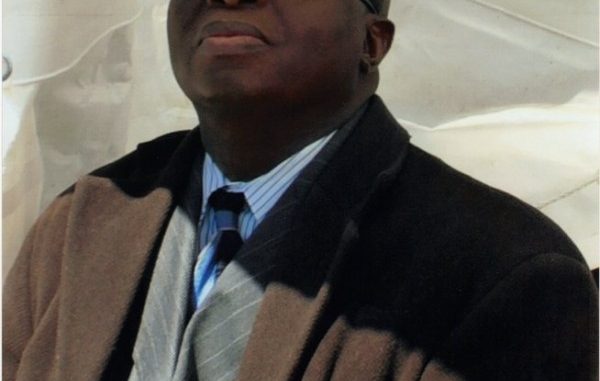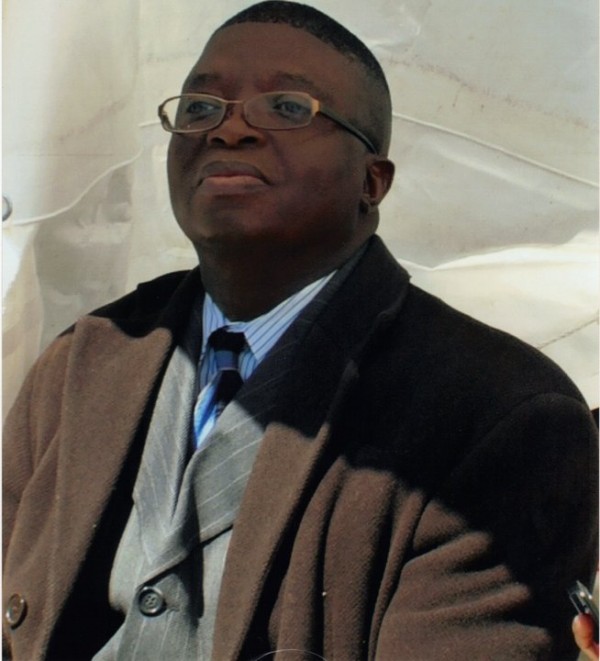
REMARKS BY REV. VICTOR H. FAKONDO SR. ON THE EBOLA VIRUS AT A US CONGRESSIONAL HEARING ON SEPTEMBER 10TH, 2014. FROM 2PM-4PM
Sponsored by Congressional Donald M. Payne. Jr New Jersey 10th District. Co-sponsored by the Liberian National Immigration Conference, held at the HC 8 Capitol Building, Washington, DC
Congressional leaders, Ambassador of Liberia, members of the press, distinguished guests, and Fellow citizens. On behalf of my fellow citizens in the countries of Liberia, Sierra Leone, Guinea and Nigeria, I would like to express my gratitude to the congressional leaders to convene such meeting. I sincerely and personally want to thank Congressman Donald Payne Jr whose father I was privileged to worked with during Sierra Leone’s country’s 10 year civil unrest. All these Congressman and women amongst us is indeed a blessing that we have advocates in government who are looking over our problems, and I sincerely commend and thank them. Our presence this afternoon at this August gathering reflects our collective concern and determination to rapidly interrupt the transmission of Ebola virus that has hit badly in these countries. It’s always a joy to speak in this historic building, it magnifies and broaden my sense of direction.
The ongoing Ebola outbreak is the largest reported to date in terms of number of cases, deaths and geographical spread, and for the first time the Ebola virus is circulating in both urban and rural communities. The current trend of this epidemic and the potential risk of cross-border and international spread constitute a public health matter of grave concern.
Let me hasten to say that every statistics given right now are all at your fingertips, but what I am doing here is to create an awareness to hasten the intervention, and for records.
As of September 4th 2014, the cumulative total of cases is 2511 and 1650 have been reported in Guinea, Sierra Leone, Liberia and Nigeria. The impact of this outbreak has been enormous in terms of loss of human lives and negative socioeconomic effects.
Health workers have been disproportionately affected, with over 240 infected cases, and 120 deaths reported amongst this group.
I would like at this moment to pay tribute to the health workers that gave their lives to save patients affected by Ebola Virus Disease. I also express my deepest sympathy and condolences to all victims and affected families.
Congressional Leaders, other dignitaries, the continuing spread of the Ebola virus during this outbreak is in great extent associated with some cultural practices and traditional beliefs which are contrary to recommended public health preventive measures. In addition, the extensive movement of people within and across borders has facilitated rapid spread of the infection across and within the four countries
Undoubtedly, the government of these countries have to do their homework, by leaving no stone unturned, in their efforts towards containment of the outbreak. Sierra Leone has declared 3 days of indoor activities and fasting (hope food and basic necessities will be supplied), and Liberia opening hospitals to help contained the outbreak. Their leadership is critical in ensuring that preventive and containment measures are effectively implemented in their countries.
The current Ebola outbreak has the potential to spread outside the affected countries and beyond the region if urgent and relevant containing measures are not put in place. There is an absolute need to improve communication between the Governments, partners like the US and communities in order to generate reliable evidence for implementation of effective and relevant actions. Effective measures to avert cross-border transmission of infections should be established in line with the requirements of International Health Regulations (IHR 2005). Every effort should be made to strengthen the IHR core capacities namely: legislation, coordination and communication, surveillance, response, preparedness, risk communication, Human Resource capacity, laboratories, entry points, zoonotic event detection, food safety, chemical and radio nuclear event in line with their international commitments
I am pleased with the work of WHO and CDC, but I believe more need to be done. I employ the efforts of other congresswomen here, who have given us our unwavering loyalty and support to eradicate this virus. Congressman Karen Bass of California 37th District, and Congresswoman Sheila Jackson- Lee, Texas-Houston, all power house voicing the African-American concerns.
President Barack Obama had previously said it is “premature” to send medicine for the treatment of Ebola to West Africa, as Liberia and Sierra Leone declared a state of emergency amid an outbreak that shows no signs of slowing.
Obama also said that he lacked enough information to green-light a promising medicine called ZMapp that was already used on two American aid workers who saw their conditions improve by varying.
We’ve got to let the science guide us and I don’t think all the information is in on whether this drug is helpful”, Obama said. “The Ebola virus, both currently and in the past, is controllable if you have a strong public health infrastructure in place.”
But he said: “the countries affected are the first to admit that what’s happened here is the public health systems have been overwhelmed. They weren’t able to identify and then isolate cases quickly. Not too fast Mr. President. My take on all of these is Time is of the essence, and he should intervene now. I am glad the President has been fully informed and educated about the seriousness of the virus and he is taking the actions deem fit to help eradicate the virus. I seat and listen attentively to all these speakers informing us what is happening and will be done in weeks and days to these countries, is indeed a clear manifestation that there is light at the end of the tunnel. I only wish these are not empty talks but actions behind their remarks. I also thank Mr. Alan Atkinson , the Acting Chief, USCIS Office of Legislation Affairs, and Mr. Wade Warren, senior deputy Assistant Administrator, Co-Chair of USAID’s Ebola Task Force, The Liberian Ambassador: on. Jeremiah C. Sulunteh and Dr. ,Margaret Stevens, The Deputy Essex County College Urban Issues Institute, whose remarks grew a standing ovation for her descriptive analysis of the situation when it comes to African Affairs.
There is no known cure for Ebola, a hemorrhagic fever that has overwhelmed rudimentary healthcare systems and prompted the deployment of troops to quarantine the worst-hit areas in the remote border region of Guinea, Liberia and Sierra Leone.
I want to thank Mr. Michael Gray of the Congressman Donald Payne, 10th district for inviting their Sierra Leonean partners to this gathering, and hope this Mano River bond will stay intact. Together we can walk to push authorities to the limit to take action.
The infections and deaths of health-care workers have three major consequences. First, they diminish one of the most important assets for the response to any outbreak. Which will ultimately lead to the closure of hospitals and isolation wards, especially when staff are refusing to report to work. They also drive fear, already very high, to new extremes. The general populace is asking questions like “if well-trained and equipped doctors and nurses are getting infected, what hope is there for us? A case in point, a facility in Sierra Leone treating 80-90 Ebola patients’ needs at least 250 health-care workers. In this region, obviously staff are scarce and hospitals with isolation facilities are virtually non-existent.
Many facilities lack reliable supplies of electricity and running water. Other severe infectious diseases, like malaria, typhoid fever, and Lassa fever, and many chronic diseases are being neglected, as people are too frightened to seek hospital care.
Liberia and Sierra Leone have only recently returned to political stability following years of civil war and conflict, which left health systems largely destroyed or severely disabled.
The outbreak, which is already having serious economic consequences, threatens to push these countries backwards .Airlines are cancelling flights. Companies are moving their staff out.
Let me be clear. Travel bans will not stop this outbreak. But preventive efforts will do the magic.
I am confident that the outcome of this meeting will lead to the adoption of a strategy for accelerated response to contain the Ebola outbreak in the West Africa region.
But like the outbreak, the challenges to containment are unprecedented. The recent surge in the number of cases has stretched all capacities to the breaking point.
The urgent needs are supplies of protective equipment and disinfectants are inadequate. Rumors and myths abound. No doubt, the outbreak continues to outstrip diagnostic capacity, delaying the confirmation or exclusion of cases and impeding contact tracing.
Furthermore, this Ebola virus is a fast outbreak, as it come in three waves, with the current wave by far the most severe. WHO, CDC, UN and its partners are rapidly catching up.
The level of vigilance and alert undoubtedly is high worldwide, as seen by the number of false alarms at airports and in emergency wards. It’s been proven, high vigilance helps ensure that imported cases are identified and isolated before they have chance to spread infection to others
With the current effort of containment from all these countries, I am optimistic that, strong support from the US, working together with the WHO, CDC, and UN agencies, we can get this outbreak under control.
You all can agree with me that, there is no early in sight. This is an extraordinary outbreak that requires extraordinary measures for containment. Together we can all do it, as we all have a collective role to play.
Thank you all, and God bless the United States of America.
Rev. Dr. Victor Fakondo Sr.




Leave a Reply